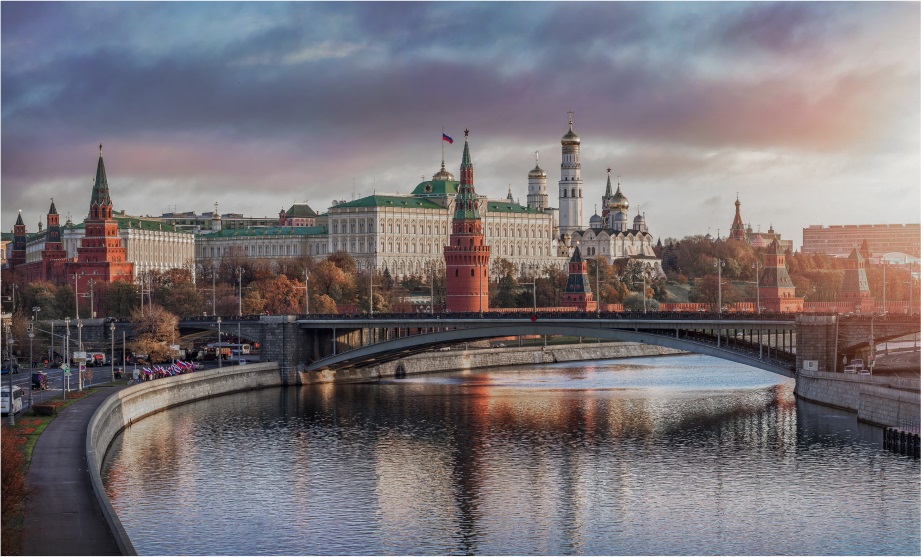This law has introduced a series of substantial changes to the Russian Tax Code concerning general tax administration issues and certain types of taxes.
What are the general tax changes?
- The time period for recording payments in a unified tax account has changed for situations when errors or discrepancies are identified in the reference values on a tax return (para. 1 cl. 5 art. 11.3 of the Russian Tax Code).
- In certain cases, to correct the due aggregate tax liability, taxpayers will be able to serve notice specifying the amount of an advance payment with a negative value necessary for tax adjustment purposes (cl. 9 art. 58 of the Russian Tax Code).
- Notice of the advance amounts is now deemed not to have been served (in full or in part) if a tax authority identifies any discrepancies between the figures set out in the notice and so-called reference tax values (cl. 9 art. 58 of the Russian Tax Code).
- An electronic bank guarantee is being introduced for VAT and excise tax refunds; the procedure for and the terms of providing the guarantee have been elaborated (cl. 2 art. 74.1 of the Russian Tax Code).
- Foreign e-service providers will only need to register for tax purposes in Russia if they operate in the B2C sector (cl. 4.6 art. 83 of the Russian Tax Code).
- As regards foreign nationals and stateless persons who do not have a place of residence/stay in Russia, their immovable property and vehicles must be registered for tax purposes with a tax office at the seat of the organisation being the source of their income or at the seat of the bank that pays interest to them (cl. 7.4 art. 83 of the Russian Tax Code).
- Until 31 December 2023 (inclusive) it will not be possible to set off a positive balance in the internal account held by the tax authorities in relation to each taxpayer, a Unified Tax Account (UTA), against another person’s tax liability (cl. 1 art. 78 of the Russian Tax Code).
New tax administration provisions
- The tax authorities can physically access the territory of the taxpayer in whose respect tax monitoring is put in place in connection with a VAT refund (cl. 1 art. 91 of the Russian Tax Code).
- A simplified complaint procedure has been introduced: in certain cases, a complaint can be processed using a simplified procedure, within seven days of its receipt (art. 140.1 of the Russian Tax Code).
- A mandatory pre-court protocol has been reinforced for challenging tax authorities’ reports whose acts or failure to act resulted in a pecuniary claim (cl. 2 art. 138 of the Russian Tax Code).
- Liability for failing to submit a calculation of the amounts of income paid out to foreign organisations and taxes withheld over the past reporting (tax) period (cl. 1 art. 119 of the Russian Tax Code) has changed.
Changes to taxation of CFCs
CFC’s undistributed profit will not be accounted for as taxpayer’s income if such CFC is an unincorporated structure not having a separate legal personality and the following conditions are simultaneously met in their combination:- such structure, according to its personal law, is a form of collective investment;
- such structure’s profit, according to its personal law, is not liable to tax;
- the profit distributed by such structure in favour of its members (equity holders or other persons) or beneficiaries is to be accounted for tax purposes when one determines the tax base for taxpayers recognised as controlling persons of such a structure (cl. 8.1 art. 25.15 of the Russian Tax Code).
New changes in the payment of VAT
- Developers’ services provided under a construction co-funding agreement have been exempted from VAT if the facilities to be built under such construction co-funding scheme are residential houses, residential and non-residential premises within a multi-apartment block (para. 23.1 cl. 3 art. 149 of the Russian Tax Code). Such exemption is not applicable to the developer’s services provided in the course of the construction of the premises that are designed as temporary accommodation (apartment units).
- The expense limit for purchasing or creating a unit of goods (work or services), the transfer of which is exempt from VAT for advertising purposes, has been increased from RUB 100 to 300 (para. 25 cl. 3 art. 149 of the Russian Tax Code).
- The sale, by an organisation carrying out tour operator activities, of a tourist product in the field of domestic or inbound tourism has been exempted from VAT (para. 39 cl. 3 art. 149 of the Russian Tax Code).
- A VAT payment procedure has been introduced for those who are given a limited right to use a plot of land in Russia (easement) (cl. 3 art. 161 of the Russian Tax Code).
- Special VAT payment and refund rules have been introduced in relation to the shipment of goods settled by payments with the issuance of a digital right and the use of digital assets (cl. 6.1 of art. 154 of the Russian Tax Code). Organisations (except for banks) purchasing digital rights from individuals or banks are recognised as tax agents (cl. 5.3 art. 161 of the Russian Tax Code). The fulfilment, by the tax agent, of the duty to assess VAT does not release the taxpayer who issued digital rights from the duty to assess VAT when shipping (transferring) goods to organisations in exchange for buying back the digital rights comprising both digital financial assets and utility digital rights (cl. 5.3 art. 161 of the Russian Tax Code).
- A procedure, and new terms, have been introduced for claiming recovery of VAT when shipping goods to buy back digital rights (art. 168 and art. 171 of the Russian Tax Code).
- A special procedure has been introduced for securing a VAT refund by a bank guarantee or suretyship in cases of an excess VAT refund on a “self-declaration” basis (art. 176.1 of the Russan Tax Code).
New changes in the payment of Personal Income Tax (PIT)
- Income payable by a Russian organisation in favour of a non-resident individual working remotely from another country is recognised as income from sources in Russia and is subject to standard PIT rates of 13%/15% (para. 6.2 cl. 1 art. 208 of the Russian Tax Code).
- Remuneration for the work (services), the rights to use IP or means of individualisation is recognised as Russian-sourced income and is liable to VAT at the rates of 13%/15% provided that the work is done on the Internet using the Russian infrastructure, the taxpayer (an individual) is a Russian tax resident and/or income is received in an account in a bank based in Russia and/or the source of payment is a Russian organisation or individual entrepreneur (para. 6.3 cl. 1 art. 208 of the Russian Tax Code).
- The tax-exempt compensation payable to remotely working employees for the use of their equipment and software and hardware has been limited. The compensation will now be no more than RUB 35 per working day or the amount of documented expenses. The amount of the compensation must be set out in a collective bargaining agreement, by-laws, an employment contract or an agreement thereto (cl. 1 art. 217 of the Russian Tax Code).
- The tax agent for PIT purposes in respect of dividends from a foreign issuer shall be a broker, trustee or depositary if the dividends arrive in the account of such a broker, trustee or depositary (cl. 2 art. 214 of the Russian Tax Code).
- Where a depositary pays income in the form of interest (coupon) on bonds into a broker’s account, a special broker’s account or a trustee’s account used by the trustee to separately keep the trust founders’ funds, the tax agent for PIT purposes with respect to such income shall be the relevant trustee or broker (cl. 5 art. 226.1 of the Russian Tax Code).
- The procedure for granting social tax deductions has been eased: it is no longer necessary to file documentary proof of expenses on education or healthcare services to a tax office if such documentary proof is produced by the organisation providing the relevant services and the tax office uploads it into your personal account (para. 2 cl. 1 art. 219 of the Russian Tax Code).
- A tuition deduction can be claimed by the spouse of a full-time student studying in an educational institution (para. 2 cl. 1 art. 219 of the Russian Tax Code).
- When paying remuneration under independent contractor agreements into the bank accounts of individuals (including residents and non-residents) with banks based in Russia, foreign organisations will be recognised as tax agents, except when remuneration is remitted via Russian organisations providing organisational, informational, technical and other capacities (in such case, the Russian organisation will be recognised as a tax agent). However, banks referenced in the Federal Law On the National Payment System will not be recognised as tax agents (cl. 1.1 art. 226 of the Russian Tax Code).
- The amounts of obligations that have been terminated in 2023 under sale and purchase agreements (concluded after 1 March 2022) relating to shares/participation interest in a Russian organisation whose owner as at 1 March 2022 is a seller who is a non-resident foreign organisation/foreign national have been exempted from PIT in cases when a decision is taken to waive debt under such agreement (para. 21.5 cl. 1 art. 251 of the Russian Tax Code).
- An opportunity has been established to apply a property tax deduction towards the sale/swap/cancellation of property rights and digital rights as well as towards inherited items and gifts (para. 2 cl. 2 art. 220 of the Russian Tax Code).
- Corrections have been introduced into how the PIT base is determined in respect of proceeds from the sale of immovable property. Specifically, it has been established that a change in the cadastral value of immovable property should not be taken into account for the purpose of determining the tax base in the current and previous tax periods. In case of a change in the cadastral value of immovable property as a result of the determination of its market value, data on the revised cadastral value that has been entered in the Unified State Register of Immovable Property shall be taken into account for the purpose of determining the taxpayer’s proceeds from the sale of this property beginning from the date when such data on the revised cadastral value has come into use (art. 214.10 of the Russian Tax Code).
- Revisions have been introduced into the procedure and timeframes for the tax agent to withhold PIT. The tax agent shall withhold the assessed amount of tax no later than one month of the earlier of the following dates:
- the end date of the relevant tax period;
- the expiry date of the last contract by the contract commencement date on the basis of which the tax agent pays the taxpayer income in respect of which it qualifies as a tax agent;
- the cash income payment date in relation to income in the form of payments not associated with the buy-back of a digital financial asset (cl. 7 art. 226 of the Russian Tax Code).
New changes in the payment of profits tax
- A tax exemption in the case of debt waiver under a loan agreement (for the principal amount and interest) whereunder the lender as at 1 March 2022 is a foreign company or a foreign national has been extended until the end of 2023 (para. 21.5 cl. 1 art. 251 of the Russian Tax Code).
- A tax exemption has been put in place for 2022 and 2023 in respect of debt waiver under sale and purchase agreements (concluded after 1 March 2022) relating to shares/participation interest in Russian organisations where the seller is a foreign organisation or a foreign national (para. 21.5 cl. 1 art. 251 of the Russian Tax Code).
- A profits tax exemption will apply to income in the form of terminated obligations pertaining to the payment to a foreign member of a limited liability company of the so-called actual value of their participation interest owned in the company when they withdraw from the company in 2022-2023 or when they are removed from company members by virtue of a court order (para. 21.5 cl. 1 art. 251 of the Russian Tax Code).
- Income in the form of replacement bonds received as a result of a bonds’ swap will also be exempt from profits tax (para. 33.3 cl. 1 art. 251 of the Russian Tax Code).
- The cost basis for tax purposes in relation to the shares/participation interest in Russian organisations the payment obligations in respect of which were accounted for in accordance with para. 21.5 cl. 1 art. 251 of the Russian Tax Code shall be recognised as being equal to zero (cl. 2.1 art. 268 of the Russian Tax Code).
- The tax value of the property (property rights) that was obtained (accounted for) without incurring acquisition costs will equal the amount of taxable profit that was recognised upon taking possession of such property (property rights), inclusive of expenses incurred in making it operational (cl. 6 art. 252 of the Russian Tax Code).
- The initial value of an intangible asset will change in the case of an upgrade and additional investment, etc (cl. 2 art. 257 of the Russian Tax Code).
- There has been established a procedure for accounting for depreciable property when it is no longer used in the operations of an organisation (without its liquidation or sale). The procedure allows one to take account of the depreciated value as at the end of the asset’s use (cl. 6 art. 252 of the Russian Tax Code).
- The list of types of property insurance contracts whereunder profits tax expenses are recognised has become open-ended (para. 10 cl. 1 art. 263 of the Russian Tax Code).
- Organisations operating in the radio electronics industry will be able to apply preferential profits tax rates (3% to the federal budget and 0% to the budget of the relevant region of the Russian Federation) (cl. 1.16 art. 284 of the Russian Tax Code).
- Anti-avoidance measures have been refreshed with the aim of preventing the splitting up of a permanent establishment of a foreign organisation to comply with the criteria of preparatory and ancillary services (cl. 4 art. 306 of the Russian Tax Code). Changes are aimed at:
- counteracting the artificial avoidance of the status of a permanent establishment in situations when persons carry out activities in the Russian Federation as a dependent or independent agent;
- recognising the activities as giving rise to a permanent establishment in the Russian Federation in the case of supply of services in the Russian Federation by a foreign organisation via individuals during a period exceeding 183 days beginning or ending in a tax period;
- counteracting the splitting up of a single business process into separate operations with a view to challenging the recognition of one’s activities as activities giving rise to a permanent establishment on the ground that each of such separate operations may be of a preparatory or ancillary nature.
- The loss from the sale of certain types of assets with the depreciation coefficient of 1.5 has been set to zero (cl. 3 art. 268 of the Russian Tax Code).
- The loss carry-forward incentive limited by a 50% rule will continue until 2026 (cl. 2.1 art. 283 of the Russian Tax Code).
- When paying income to a foreign organisation in a foreign currency, the tax agent will calculate withholding tax using the official exchange rate of the Central Bank of Russia as at the income payment date (cl. 1 art. 310 of the Russian Tax Code).
New tax rules on Individual Trust Structures’ (ITS) taxation
- The profits tax rate in relation to dividends received by the ITS is set at 15% irrespective of the conditions stipulated by the Russian Tax Code in relation to other rates in respect of dividends (art. 28.12 of the Russian Tax Code).
- As a non-profit organisation, the ITS does not assess depreciation on the property that was received as special-purpose contributions or purchased at the expense of special-purpose contributions and is used in non-profit activities (art. 256 of the Russian Tax Code).
- The transfer of property (and property rights) from an ITS to a beneficiary is not subject to VAT (para. 24 cl. 2 art. 146 of the Russian Tax Code).
- In respect of property tax levied on residential units, garages and parking spaces that are owned by an ITS and whose tax base is defined as the cadastral value, applicable tax rates may not exceed 0.3% (except for properties whose cadastral value is over RUB 300 million each) (cl. 1.2 art. 380 of the Russian Tax Code).
- If income is received in cash or in kind by the founder or his/her close relatives during the lifetime of the founder, PIT will not be payable on such income. PIT will be assessed if the beneficiaries of income are distant relatives of the founder (cl. 18.2 art. 217 of the Russian Tax Code) or tax non-residents of the Russian Federation.
- If a person receives securities, other property and property rights from an ITS and these are not subject to PIT, the recipient, when disposing of the same, may “inherit” and claim as the tax basis the costs that have not been previously expended for tax purposes in the hands of such ITS or its founder (cl. 13 art. 214, para. 2 cl. 2 art. 220 of the Russian Tax Code).
The Denuo team is ready to provide assistance on the abovementioned issues, to assess the implications of these changes for your structures and operations, and to provide tax support.





